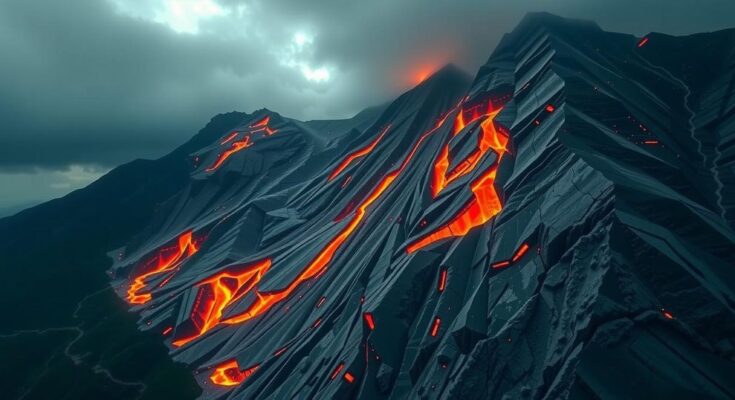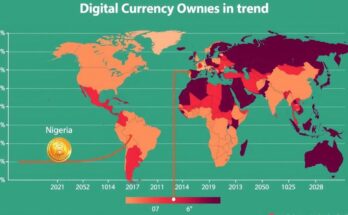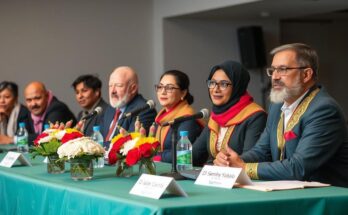The recent collapse of a mountain in the Democratic Republic of Congo exposed significant copper reserves in the Katanga region, provoking global discussions on colonialism and resource management. The incident, captured in viral footage, has led to online reactions advocating for protecting these resources from foreign exploitation, reflecting deep-rooted concerns about historical and contemporary issues related to resource extraction.
A recent geological event in the Democratic Republic of Congo (DRC) has garnered significant attention, as the collapse of a mountain in the mineral-rich Katanga region unveiled extensive copper reserves. The event sparked rampant discourse online about colonialism, with many individuals humorously suggesting measures to protect these resources from foreign exploitation. Al Jazeera reported that viral footage depicted onlookers fleeing as boulders cascaded down the collapsing mountain, highlighting the perilous nature of excavation activities in the region. Copper stands as one of the DRC’s foremost natural resources, with the nation possessing substantial deposits primarily in Katanga, situated within the Central African Copperbelt, reputedly the most lucrative mineral belt globally. The high-grade copper found in this region is characterized by its exceptional quality and relatively low production costs, rendering it highly competitive on international markets. Additionally, Katanga hosts valuable reserves of cobalt, uranium, tin, and zinc, amplifying its mineral significance. The international demand for copper is projected to surge, driven by its crucial applications in electrical wiring and the burgeoning green energy sector, including electric vehicles. Such factors contribute to an increasing valuation of the country’s copper resources, further igniting online reactions to the recent discovery. One user on X remarked, “Hello continental Europe, UK, USA, China – keep your filthy hands away. This belongs to Congo people.” Another user advocated for a prohibition on Western entry, stating, “Congo needs to ban entry of Britain and other westerners to keep them safe.” Moreover, comments reflecting on the extractive practices in the region suggest that the mountain’s collapse may not have been purely natural but rather a consequence of extensive mining activities, as underscored by one user’s assertion that “this mountain didn’t collapse naturally but months of digging at its base made it collapse.” This incident not only reveals the valuable copper reserves but also emphasizes broader socio-economic concerns regarding resource management and foreign involvement in the DRC. The online discourse reflects a growing awareness of the historical contexts surrounding colonial exploitation and contemporary resource rights in the region.
The Democratic Republic of Congo is renowned for its vast mineral wealth, particularly its copper reserves, concentrated in the resource-rich Katanga region. This area is part of the Central African Copperbelt, which is lauded as the largest and most productive mineral belt globally. The DRC’s high-grade copper is highly sought after as it is essential for various industries, including electronics and renewable energy solutions. The ongoing global pivot toward electric vehicles and sustainable energy has further intensified the demand for this vital resource, framing the DRC as a critical player in global supply chains, while also raising questions about historical exploitation and current equitable resource management.
In conclusion, the mountain collapse in the Democratic Republic of Congo has not only unveiled vast copper reserves but also reignited discussions about the historical exploitation of the region’s resources. As global demand for copper escalates, the incident serves as a reminder of the delicate balance between resource extraction, national sovereignty, and the lingering impacts of colonialism. The reactions observed on social media underscore the complexities surrounding foreign investments and the need for conscientious governance of natural resources.
Original Source: www.hindustantimes.com




